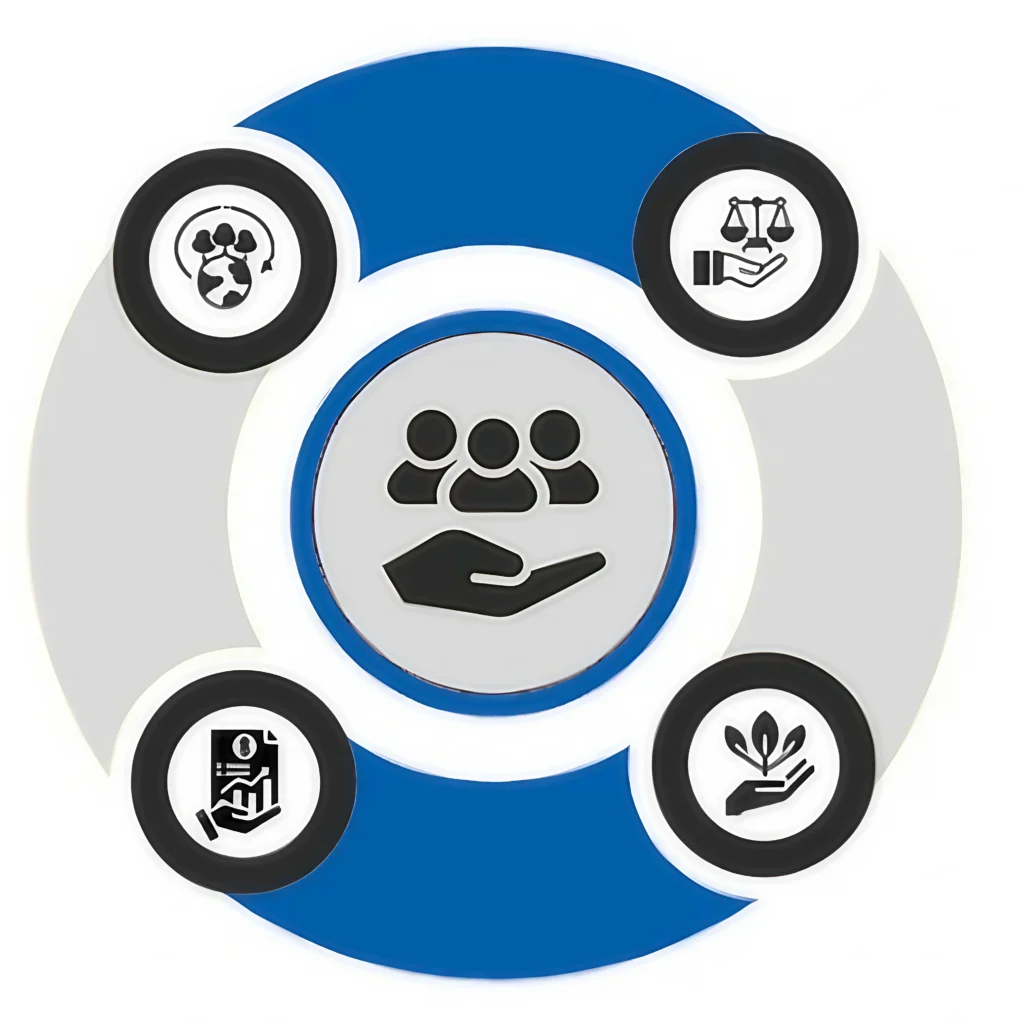Corporate Social Responsibility
SES’s Corporate Social Responsibility (CSR) framework is deeply rooted in the principle of ownership as trusteeship, reflecting a commitment to ethical stewardship, community empowerment, environmental sustainability, and long-term value creation.
SES embraces the philosophy that ownership entails responsibility—not just for profit, but for people and the planet. This aligns with Mahatma Gandhi’s concept of trusteeship, where wealth and resources are held in trust for the benefit of society. SES’s ESG strategy, known as the Horizon ESG Strategy, integrates global challenges outlined in the UN’s Sustainable Development Goals, focusing on four key pillars: Sustainable Space, Climate Action, Belonging, and Critical Human Needs.
Women Empowerment Initiatives
Self-Help Groups
Facilitating the formation of groups where women can save money, access credit, and start small businesses, thereby boosting financial independence.
Skill Development Workshops
Offering training in areas such as tailoring, computer skills, handicrafts, and digital literacy, often in collaboration with NGOs or community organizations.

Legal Awareness Camps
Educating women about their rights related to property, marriage, domestic violence, and more.
Health Camps and Menstrual Hygiene Drives
Providing education and resources on women's health, particularly in rural areas.
Political Participation
Encouraging women to engage in local governance and community decision-making bodies.
Sustainable Sourcing and Environmental Stewardship
Ethical Mining
Ensuring that materials like lithium, cobalt, and nickel are sourced from suppliers with strong environmental and labor practices.
Recycling and Reuse
Investing in technologies and processes that recycle battery materials to minimize the need for raw material extraction.
Energy Efficiency
Developing and manufacturing batteries with higher energy density and longer life cycles to reduce waste and energy consumption.
Waste Management
Implementing robust recycling programs for end-of-life batteries and ensuring proper disposal methods to minimize environmental harm.
Quality Control and Innovation
Maintaining rigorous quality control processes and investing in research to improve battery safety features, such as thermal stability and resistance to overheating.
Transparency and Communication
Regularly publishing sustainability reports detailing environmental and social impacts, and engaging with stakeholders to address concerns and gather feedback.
Regulatory Compliance and Advocacy
Adhering to international and local regulations regarding battery safety, environmental impact, and labor practices, while supporting policies that promote responsible industry practices.
Employee Training and Development
Providing ongoing training for employees on best practices in sustainability, safety, and ethical behavior, fostering a culture of responsibility.
Customer Education
Educating customers on the proper use, maintenance, and disposal of lithium-ion batteries to extend their lifespan and reduce environmental impact.
Long-Term Vision
Setting long-term sustainability goals and continuously assessing and improving practices to align with evolving industry standards and environmental needs.
SES’s comprehensive CSR approach demonstrates a commitment to ethical stewardship, community empowerment, environmental sustainability, and continuous improvement, aligning with global standards and contributing positively to society.

Educational Engagement
SES actively collaborates with educational institutions to foster learning and development:
- Student Placements: Partnering with local engineering colleges, such as the Ambala College of Engineering and Applied Research, to offer year-long placements as part of students’ engineering degrees.
- Employee Education Sponsorship: Providing sponsorship programs for employees to pursue further education, including degrees and certifications, thereby promoting continuous learning and professional growth.

